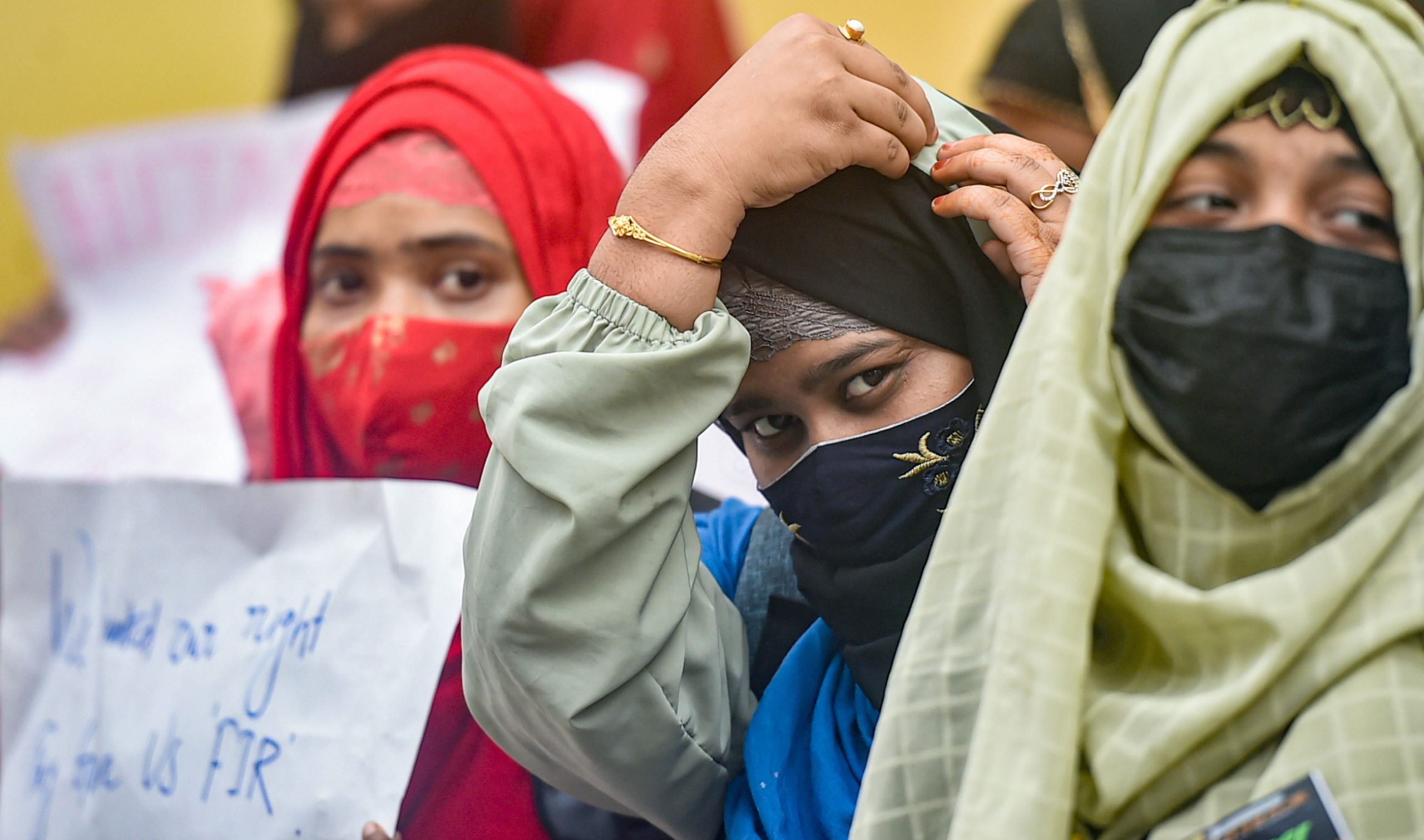India responded on Saturday to remarks made by other countries on the ongoing hijab row in Karnataka.
External Affairs Ministry spokesperson Arindam Bagchi said, “A matter regarding dress code in some educational institutions in the State of Karnataka is under judicial examination by the Hon’ble High Court of Karnataka. Our constitutional framework and mechanisms, as well as our democratic ethos and polity, are the context in which issues are considered and resolved.”
Also Read: What is Uniform Civil Code?
“Motivated comments on our internal issues are not welcome,” he added.
Muslim students in colleges in Karnataka are demanding they be allowed to attend classes wearing the hijab – a traditional headscarf commonly worn by Muslim women.
Also Read: Karnataka hijab row: What Indian courts have said on the headscarf
A government order passed on February 5 is at the heart of the hijab row in the state, which started in December last year when Muslim girls in Udipi were asked to leave the classroom. Using the powers vested in the executive under Section 133 (2) of the Karnataka Education Act, 1983, the government had stated that the hijab was not going to be part of the uniform, reasoning that it is not an ‘essential religious practice’ of the Muslims guaranteed under the constitution.
Soon after the order, the situation in the state got tense and took a violent turn. A group of women approached the Karnataka high court, which is in the process of hearing arguments and might have to come out with a ruling on whether the hijab is an essential religious practice not.
Also Read: Bikini or hijab, woman’s right to decide: Priyanka Gandhi Vadra on Karnataka row
The issue has gained attention from countries across the world. On Friday, the US Ambassador at Large for International Religious Freedom, Rashad Hussain, had tweeted, “Religious freedom includes the ability to choose one’s religious attire. The Indian state of Karnataka should not determine permissibility of religious clothing. Hijab bans in schools violate religious freedom and stigmatize and marginalize women and girls.”
Pakistan too had earlier summoned Indian Charge D’affaires in Islamabad to raise concern and blame India for ‘religious intolerance, negative stereotyping, and discrimination against Muslims’, Daily Pakistan reported.







